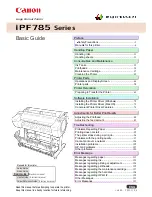
Reloading Software
Updating Software
D-2
D.2 Reloading Software
The EPS stores software in Flash ROM to control the initialization process, operation, and
command processing. The contents of Flash ROM can be updated by downloading a new
version of the operational software via NetWare, TCP/IP, or MOP. Regardless of which
protocol is used to update Flash ROM, the following points are important:
◆
The Flash ROM software file name, EPS.SYS, should not be changed.
◆
The download file should be world-readable on the host.
◆
There is a sixteen character length limit for the path name.
◆
There is a twelve character limit for the filename.
◆
Define commands must be used because Set configurations are cleared when the
EPS boots. Use the List Server Boot command to check settings before rebooting.
Note:
It is important to check EPS settings before using the Initialize Reload
command to ensure that you are reloading the correct software file.
D.2.1 Reloading Sequence
If DHCP, BOOTP, or RARP is enabled on the EPS, the EPS will request assistance from a
DHCP, BOOTP, or RARP server before starting the download attempts. The EPS will then
try TFTP, NetWare, and MOP booting (in that order) provided that it has enough
information to try each download method.
Downloading and rewriting the Flash ROM will take approximately two minutes from the
time the Initialize command is issued. If the download file cannot be found or accessed,
the EPS can be rebooted with the code still in Flash ROM. The OK/ACT LED will blink
quickly while the EPS is booting (and reloading code) and then slowly when it returns to
normal operation.
Note:
If you experience problems reloading Flash ROM, refer to Trouble-
shooting Flash ROM Updates on page D-4.
D.2.1.1 TCP/IP
Before the EPS downloads the new software, it will send DHCP, BOOTP, and/or RARP
queries (all are enabled by default). Next, the EPS will attempt to download the EPS.SYS
file using TFTP (Trivial File Transfer Protocol).
Note:
EZWebCon can also be used to reload software.
If a host provides DHCP, BOOTP, or RARP support, it can be used to set the EPS IP
address (all methods) and loadhost information (BOOTP and RARP only).
Some BOOTP and TFTP implementations require a specific directory for the EPS.SYS
file. See your host’s documentation for instructions.
















































